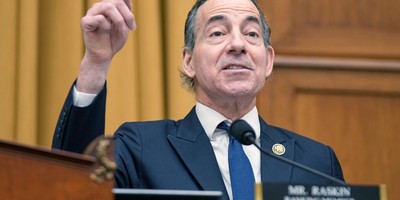The economy is a rising issue in presidential politics, but Iraq still overshadows this election.
John McCain's nomination was ensured by the success of the surge he had consistently advocated, against intense opposition.
If Barack Obama eventually wins the Democratic nomination, his extraordinary rise may be traced to a speech on Oct. 2, 2002, at an antiwar rally in downtown Chicago. That day, Obama, then an obscure state senator, said: "I know that even a successful war against Iraq will require a U.S. occupation of undetermined length, at undetermined cost, with undetermined consequences."
For many Democrats, this prescience has given Obama the aura of a prophet. And this early opposition lends credibility to his current promise: to swiftly end the U.S. combat role in Iraq.
Recently, this pledge was called into question by Obama's now-former adviser, Samantha Power, who said: "He will, of course, not rely on some plan that he's crafted as a presidential candidate or a U.S. senator. He will rely upon a plan -- an operational plan -- that he pulls together in consultation with people who are on the ground."
The proper response to such a statement is: One would hope so. Power's "gaffe" happens to be an obvious truth. Would Americans expect a president to keep campaign pledges that he later determines would undermine the national interest?
But it is not only the future of Obama's antiwar commitment being questioned; it is also his past consistency. In a new article on Commentary magazine's Web site, Peter Wehner undertakes a thorough examination of Obama's record on Iraq. It is, shall we say, complex.
Recommended
More than a year after the initial success of the invasion, Obama explained, "There's not much of a difference between my position and George Bush's position at this stage." And he was correct. In July 2004, he argued that America had an "absolute obligation" to stay in Iraq until the country stabilized. "The failure of the Iraqi state would be a disaster," he said. "It would dishonor the 900-plus men and women who have already died."
Two months later, Obama criticized Bush's conduct of the war but repeated that simply pulling out would further destabilize Iraq, making it an "extraordinary hotbed of terrorist activity." And he signaled his openness to the deployment of additional troops if this would make an eventual withdrawal more likely.
In June 2006, Obama still opposed "a date certain for the total withdrawal of U.S. troops." "I don't think it's appropriate for Congress," he said, "to make those decisions about what happens in the field."
By late 2006, as public support for the Iraq war disintegrated and his own political ambitions quickened, Obama called for a "phased withdrawal." When Bush announced the surge, Obama saw nothing in the plan that would "make a significant dent in the sectarian violence that's taking place there" -- a lapse in his prophetic powers.
When Obama announced his presidential candidacy on Feb. 10, 2007, he stated, "I have a plan that will bring our combat troops home by March of 2008." Then in May and again in November, he voted against funding American forces in Iraq.
Wehner concludes that Obama is guilty of "problematically ad-hoc judgments at best, calculatingly cynical judgments at worst." And he notes that while McCain has been consistently right about Iraq in the years since the invasion -- highly critical of the early strategy and supportive of a successful surge -- Obama has been consistently wrong in supporting the early, failed strategy and opposing the surge, even as its success became evident.
Obama did indeed oppose the war early on. But he did not become an antiwar leader in Congress. He is not Dennis Kucinich -- and thank goodness. Obama's initial foreign policy instincts -- refusing to tie the hands of the military with arbitrary deadlines -- were not radical. I find this reassuring.
But there is little doubt that Obama has gained in political support among Democrats as his positions on Iraq have become progressively antiwar. His March 2008 withdrawal deadline -- which is up now -- would have undone the Anbar Awakening, massively strengthened al-Qaeda and increased civilian carnage. And Obama will find -- as John Kerry found in 2004 -- that Americans are suspicious of a prospective commander in chief who votes against funding U.S. troops in the field.
The Iraq war determined the paths for McCain and Obama. But there is a large difference between them. McCain eventually won his nomination because he showed political courage in the face of overwhelming pressure. Obama may eventually win his nomination because he surrendered to that pressure.

























Join the conversation as a VIP Member